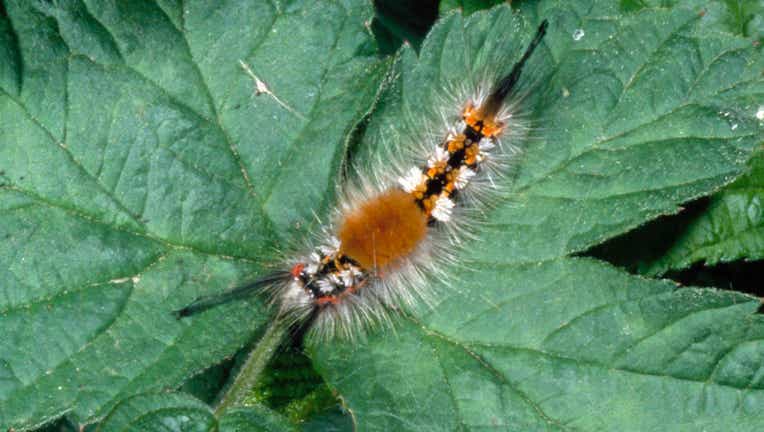Florida officials warn of caterpillars that leave stinging rashes

Rusty tussock moth or Vapourer (Orgyia gonostigma) caterpillar, Lymantriidae. (Photo by DeAgostini/Getty Images)
SEMINOLE COUNTY, Fla. - Watch out, parents! As spring continues, you will want to watch out for these stinging caterpillars in Central Florida.
Seminole County Public Schools issued a warning on Twitter this week about caterpillars that can potentially cause a stinging rash.
They attached information from the Florida Department of Health about the insects.
MORE NEWS: Live updates: Derek Chauvin won't testify in trial, defense will rest
"As Florida spring approaches, children have more opportunities to play outside and possibly come in contact with caterpillars," the health release said. "One of those caterpillars is called Orgyia leucostigma, more commonly known as the white-marked tussock moth caterpillar."
They said that the caterpillar is common in Florida so children could come in contact with one. Direct contact with the caterpillar's hair or its cocoon can cause an allergic reaction. This could lead to the development of an itchy rash.
"The yellowish-white hairs are barbed and can be difficult to remove from the skin. Rash outbreaks have occurred in schools and childcare facilities where the caterpillar has been found on outdoor playground equipment," the Florida Department of Health explained.
WEATHER ALERT: Could Florida be a heavy rain target in coming days?
They advise that parents who notice these caterpillars at playgrounds should consider not allowing them to play there. They can ask the organization that established the playground to remove the caterpillars safely.
However, if the caterpillars are found at home in the yard, children are encouraged not to play with them and a pest control company should be contacted if there is an infestation.
If the child does become exposed, they said to:
- "Remove the caterpillar from the skin without using bare hands."
- "Gently put any kind of tape over the exposed area with the sticky side facing the exposed skin."
- "Pull up the tape, removing any hairs or spines."
- "Repeat with fresh pieces of tape as often as needed to treat the exposed skin."
- "Wash the area gently with soap and water."
- "Apply ice pack to reduce stinging sensation and apply paste of baking soda and water to reduce itchiness."
- "If the rash does not go away, gets worse, or gets badly blistered, considering consulting with a healthcare provider for further evaluation and recommendations."
For those in Seminole County with further questions, feel free to call the Florida Department of Health in Seminole County at 407-665-3243.
Tune in to FOX 35 Orlando for the latest Central Florida news.

